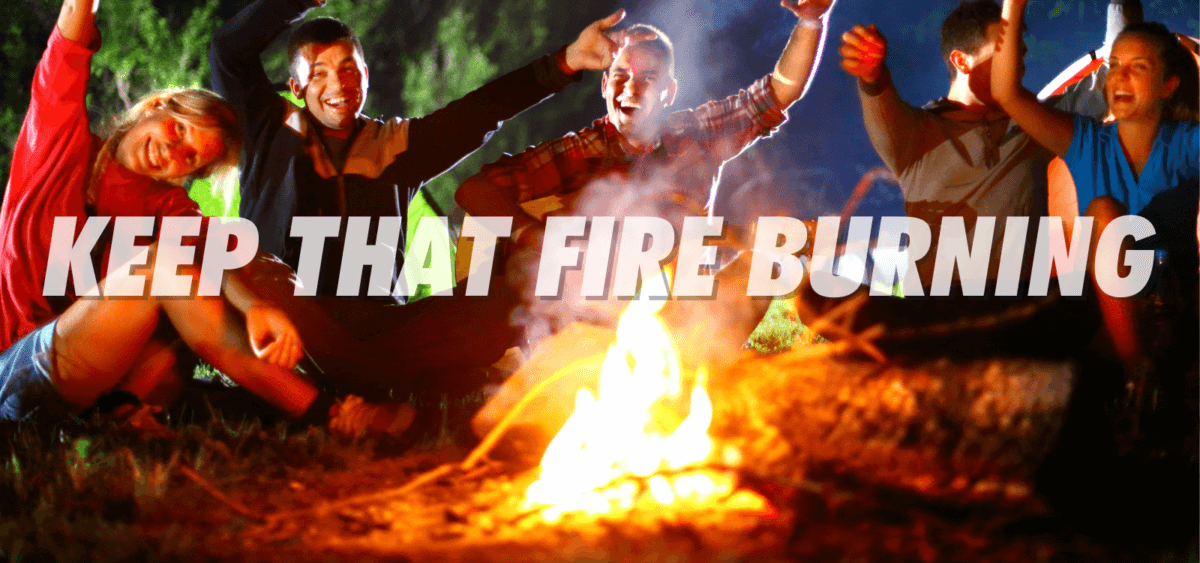COMEDY COURSE HOME | COMEDY BASICS | COMEDY WRITING | COMEDY PERFORMANCE | THE COMEDY BUSINESS | PRO COMEDIAN TIPS | HISTORY OF COMEDY | OTHER RESOURCES & MISC BITS

Click HERE for the course intro and other chapters:

Find where the comedy open mics are in your area.
Look for websites that list all the comedy shows in your city, or CHECK OUT THIS RESOURCE
A simple Google search of your city’s name followed by “comedy open mic” is a good way to start.
Figure out how many open mics you can realistically attend this week.
Additionally, learn about the requirements for performing at these open mics and sign up if necessary.
In the UK you will generally have to sign up in advance and book in your mics well in advance.
Choose open mics specifically dedicated to comedy, as this class was designed with those in mind.
There are plenty of online resources and forums to find mics but if you live in a more rural area you may struggle.
Also if some of the lingo or terminology is a bit confusing feel free to browse out Comedy glossary of Vocab & terminology.
Keep in mind that music open mics pose a tougher challenge because you’ll need to capture the audience’s attention and make them focus, which isn’t the primary expectation for music acts.
However, if you can make them laugh on a night that’s not particularly comedy-friendly, it’s a significant achievement to be proud of.

Write five minutes of material. The type of material is entirely up to you.
I know this assignment may seem vague and lacking guidance, but that’s intentional.
The word “material” itself is purposely broad, simply indicating “something that exists.”
Comedians use various terms like “stuff,” “chunks,” and “bits” to describe their act.
What are these bits made of? They can be anything that you find funny.
As a famous comedian once said,
“You should write whatever you can’t stop thinking about.”
If you’re still stuck, don’t worry. It’s completely understandable, especially since you’re just starting out and haven’t had much practice.
In all the writing assignments you’ve had in school, “Write something funny” never came up.
Here’s a simple exercise to get you started:

Recall something you said that made your friends laugh.
After one of my performances, a guy came up to me and said,
“It’s weird you’re hanging out after the show. Most comedians won’t do that.”
He said “comedians” in a condescending way, like a snotty kid saying, “Ooh… look at the big comedian.”
Without responding to his tone, I said,
“That’s weird, we always hang out after the show.”
We do. But the guy ignored my response and exclaimed,
“Fucking queers don’t want to drink with me.”
It became evident that he was a bigoted asshole, which explained why no one wanted to drink with him.
I whispered to my friend Adam,
“Now I get it,” and he laughed.
In reality, I only said, “Now I get it,” and Adam laughed.

I didn’t need to describe the guy or mention that we were at a comedy show because Adam was there with me, witnessing everything.
All Adam needed was “Now I get it” for it to be funny.
However, when I shared this story on stage, I added a setup about going all over the country performing comedy, meeting cool people, and retelling the guy’s interaction.
Then I imitated his voice, saying, “Fucking queers don’t want to drink with me,” followed by, “and I was like, “Now I get it.”
I got a laugh in the same place as I got it from Adam that night.
With those modifications, something I said that made my friend laugh became a joke I could do on stage.
Incidentally, Adam doesn’t appear in the joke at all. His presence at the scene is not essential to why it’s funny.
The joke is about me and the guy, not Adam. That night, Adam was in the audience. In a comedy show, I have a real audience.
Telling them that Adam was there is just needless words that don’t serve my purpose, which is to get a laugh when I say, “Now I get it.”
You only need to include what the crowd absolutely needs to know to get the joke. Everything else should go.
Don’t spend more than 5 hours writing your material.
It’s not a novel, it’s five minutes of comedy.
The important thing is to get up on that stage as soon as possible. Don’t put off that first performance.
It may be nerve-wracking, but prolonging the wait only makes it scarier.
Rip the plaster off as quickly as possible. Your fear will evaporate in time as the experience is no longer a scary unknown.

What you think is funny on paper won’t be funny on stage.
Things you think are not funny on paper turn out to be hilarious.
You won’t know until you road test it. So get on the road (Stage) ASAP
Get your ideas in front of an audience as soon as possible.
You will have all the time in the world to re-write it later, when you actually know what worked.
Yes, you 100% can! You can do anything you want as long as you can get them to laugh after you do it.
Stories and character monologues work a lot like “jokes.”
If one of these is your thing, for every sentence in this book that mentions “jokes,” just replace “joke” with “character monologue line” or “story beat” and the principles are the same.
Comedic stories need to have little jokes or punchlines peppered throughout the tale.
Unless it is incredibly interesting you need to have these laughs sewed into the story or it becomes a ted talk or that boring monologue story your uncle recites every family gathering.
You will need to get 2 to 4 laughs per minute.
They don’t have to be the biggest belly laughs in the world but enough to keep the attention.

Think of it like keeping a campfire burning. You need to keep popping some kindling on to keep the fires burning before you pour the petrol on at the end for the killer punchline / explosion.
I’m not sure if that analogy makes sense or just reveals my pyromaniac past.

Don’t get too caught up in the (LPM) laughs per minute ratio. It’s important to keep people laughing but don’t stress if there is a section of your set where it luls.
Making an audience wait longer here and there can build tension, but the longer they have to wait, the bigger that payoff is going to need to be.
Stand-up is both the widest and the most narrow form of performance there is. You can do anything you want…. as long as the audience does one specific thing over and over again… Laugh!

Once your five minutes are written down, it’s time to memorize it.
You don’t have to know it word for word. Some level of memorization is necessary.
You just need to have the beats of the set.
Some people like the certainty of knowing the words by heart. However you prefer and are more comfortable is fine.
Others find memorisation a source of stress and would rather not have another thing hanging over their head they have to remember not to screw up.
For them, a loose idea they can sort of “jam on” is better.
Whichever sounds best to you is how you should do it, as starting out in stand-up is all about increasing your comfort level as you do something that provokes intense anxiety.
However you choose, I have found that whether a joke was written out verbatim the minute the idea appeared or whether it took ten tries through informal riffing, a “right way” based on brevity and the strongest, most colourful word choices begins to suggest itself.
By the time a joke is ready to be recorded, even the “jazziest” comics tell it pretty similarly from night to night.
There are advantages and drawbacks to both approaches.
A memorised joke sounds polished and can be delivered with confidence, each syllable emphasised for maximum power.
You may discover interesting language sitting down and writing that your onstage riffing brain would never have landed on in the moment.
On the flip side, there is a directness and energy to an improvised wording that a memorised bit can lack.
It sounds like you’re just hanging out with the audience and that’s powerful.
When you script a bit out verbatim, there can be a tendency to think of it as “set in stone.”
You deliver the lines like an actor and only those lines.
You can forget that there is always room to add things because you are not talking “in the moment.”
A common method and one I use is to go on stage with at least one written-out punchline for each new bit that I intend to work on.
On a fresh page, I write down all the punchlines and premises in a list before I go up.
A McDonalds bit might be listed as “Lazy/Pot/McDonalds”
Lazy/Pot/McDonalds
Comedians don’t hang out/Now I get it
40/Green Day
40/Close Bar/Bulls
Favorite Gay Bar/Ke$ha
After it’s all written out, I take the list up with me and riff.
No matter what, I always make sure I hit at least one prepared punchline for each subject I bring up.
That way, bomb or crush, the audience will know I had a purpose to each bit.
You will test their patience if they feel you are just meandering around with no payoff. They will check out.

You owe it to them to reward their attention with at least one thought-out comedic idea for each of my premises.
They should know you respected them enough to at least have a point to each of my ramblings, even if the jokes don’t all land.
If they happen to really like one of those punchlines, keep talking, in case you find something else funny.
If they seem to like where it’s going, explore ands find out what else is there.
This can lead to great stuff, but if leads yo a dead end, at least they got a solid joke they liked before exploring.
Over time, as the repetition and trial and error process continues, jokes inevitably find their way into a series of words that change a little from night to night.
It’s the best way I have found to get that idea out, and I know it by heart.

Do your five new minutes at an open mic.
Then do THIS SAME five minutes at two more open mics.
Write down what worked and what didn’t, but don’t adjust anything yet. Perform the same jokes in the same order.
Tell your jokes the way you think they work best.

After your week of performances, or however long it takes to do a set at three open mics, look over your notes.
Answer the following questions about your set:
Keep this info handy for next week. We will get into it in depth.

When you’ve done your three performances, and you’ve written down your initial thoughts about your jokes, watch the late, great Greg Giraldo’s special “Midlife Vices.” It is currently view-able on Youtube.
Answer the following questions.
They are also available as printable Worksheet here.
Every week there will be comedians to watch and you will answer these same questions every time, so print a few copies.
This is an adaptation of the free 12week course Jon Roy offers HERE

Learn more about the Comedy Basics here

Bookings for our Bar on the Southbank, SE1 Baby